How to Stop Overthinking in a Relationship
In the tangled web of love, our minds sometimes turn into overactive detectives, obsessing over every little detail and weaving intricate plots. “Am I good enough? Does she really love me? What did that text mean?” – If you find yourself in this mental maze, you’re not alone. Overthinking in relationships can be a relentless, emotional rollercoaster, but there’s a way to step off that ride.
The Nature of Overthinking in Relationships
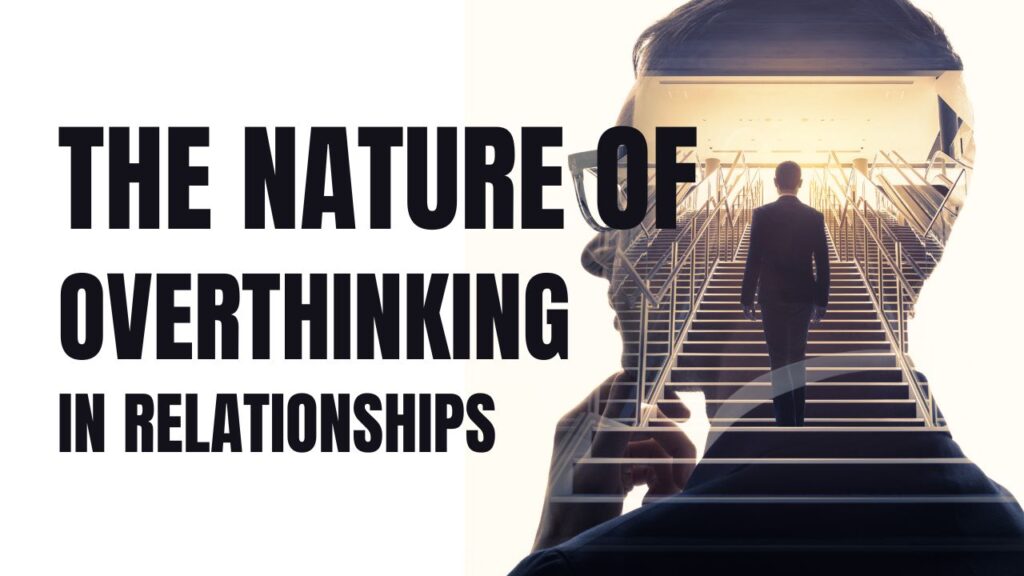
Understanding Overthinking
Overthinking in relationships is like a mental merry-go-round that never stops. It’s when you’re constantly playing out scenarios in your head, worrying about things that might not even be an issue. Your mind is the star of a Hollywood movie, creating drama where there doesn’t need to be any.
So, why do we overthink? For one, it’s part of human nature. We’re wired to analyze and process information, and in relationships, our brains tend to go into hyperdrive.
But is it only women who overthink? Nope. It affects both genders, but there are differences in how we approach it. Women might overthink more often because they often have an inclination to talk about their feelings and seek advice from friends, adding more fuel to the thinking fire.
Catastrophizing in Relationships
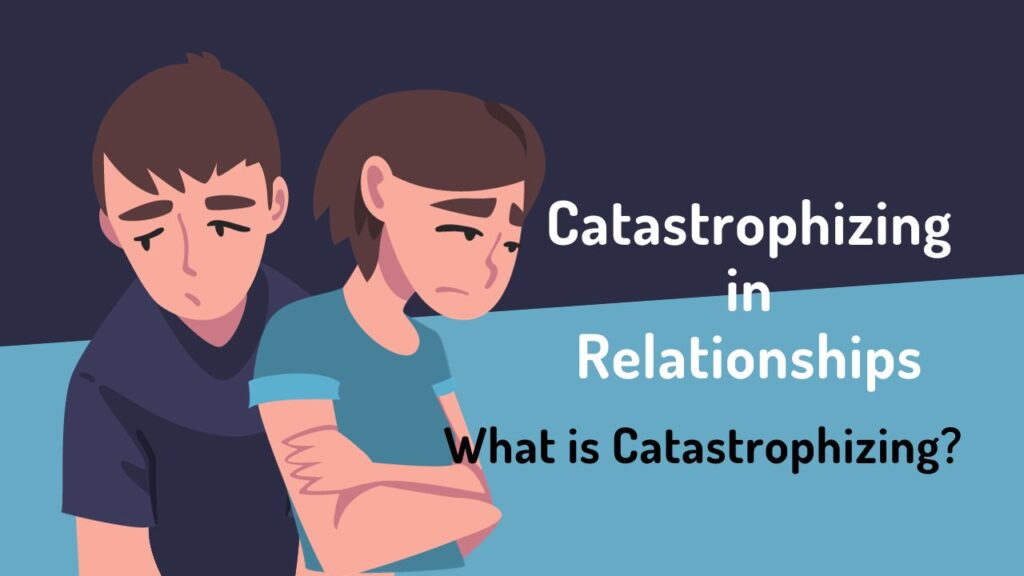
What is Catastrophizing?
When we overthink, we often engage in something called “catastrophizing.” This is when we take a small issue and magnify it into a full-blown disaster. For instance, if your partner doesn’t text back immediately, you might leap to the conclusion that they’re upset with you, or worse, they’re cheating. Catastrophic thinking is the turbocharger of overthinking.
This kind of thinking can wreak havoc on your relationship. Those small doubts can snowball into a breakdown in trust, and before you know it, your relationship feels like a scene from a Shakespearean tragedy.
Overthinking vs. Overanalyzing

Balancing Thought and Action
You might be wondering: what’s the difference between overthinking and overanalyzing? It’s a fine line, but here’s the deal. Overthinking is when you dwell on problems without actually solving them. Overanalyzing, on the other hand, is when you think deeply to find solutions.
So, what do you do when overthinking becomes unhealthy? Well, it’s time to find the sweet spot between thought and action. If you’re overthinking a situation, take a step back and ask yourself, “What can I do to make things better?”
Dealing with Accusations of Overthinking
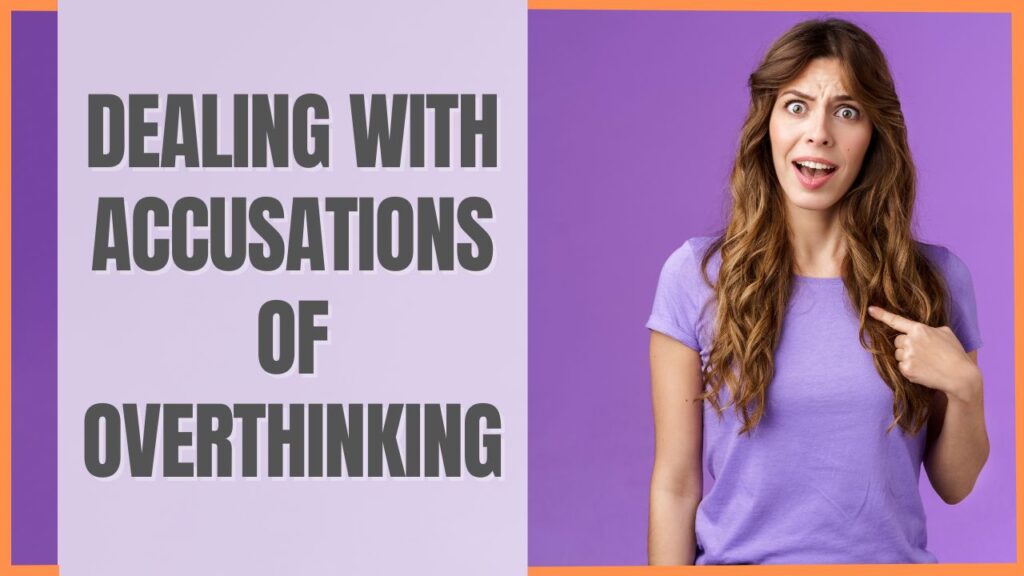
Navigating the Conversation
Imagine this: you’re in the middle of an argument, and your partner drops the “You’re overthinking things again” bomb. What now? The worst thing you can do is to deny it or get defensive. Instead, practice some constructive communication. Listen to what they’re saying, and then calmly explain your thought process.
It’s all about striking a balance between self-expression and empathy. Sometimes, just understanding your partner’s perspective can be a game-changer.
Apologizing for Overthinking in a Relationship
The Art of Making Amends
We’ve all been there – you’ve overthought, and it’s caused problems in your relationship. The first step is recognizing that you need to apologize. A sincere apology is like a healing balm for your relationship.
Apologizing for overthinking involves a three-step dance: acknowledge your behavior, express regret, and make amends. It’s like saying, “Hey, I messed up, and I’m sorry. How can I make it right?”
How to Stop Assuming in a Relationship
Quashing the Assumption Bugs
Another aspect of overthinking is assuming things without any evidence. Assuming can be as destructive as overthinking. When you make assumptions, you’re essentially writing a script for a movie that may never happen.
The remedy is straightforward: communicate openly and honestly. If you’re unsure about something, ask. Seek clarification. Instead of assuming your partner’s intentions, inquire about their feelings. Remember, your partner is not a mind reader!
Strategies to Stop Overthinking in a Relationship
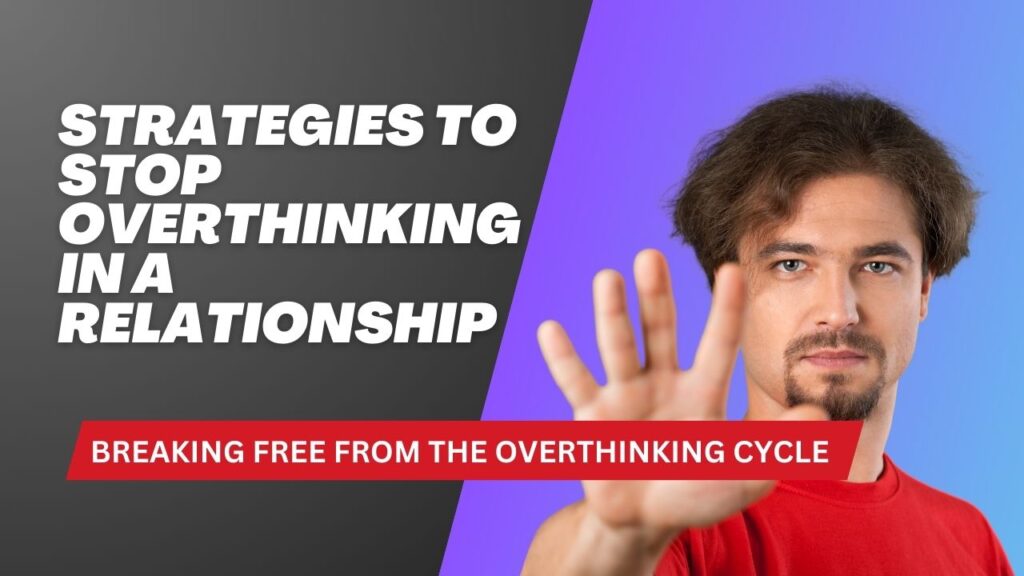
Breaking Free from the Overthinking Cycle
Now, let’s get to the good stuff. How do you stop overthinking in a relationship? There are several strategies to help you break free from the overthinking cycle.
Identify Your Triggers: Recognize what sets off your overthinking. Is it specific situations, words, or behaviors? Awareness is the first step to change.
Mindfulness and Grounding Techniques: Practice mindfulness to stay present in the moment. Grounding exercises can help you reconnect with reality when your mind starts to wander.
Self-Care: Take care of your mental and emotional well-being. This includes setting boundaries, engaging in hobbies, and managing stress.
Seek Professional Help: Sometimes, overthinking is deeply rooted in your past or related to mental health issues. A therapist can provide guidance and support.
Practicing Gratitude: Regularly remind yourself of the positives in your relationship. Gratitude can combat the negativity that often fuels overthinking.
Overcoming Overthinking in Long-Distance Relationships
The Unique Challenges
Long-distance relationships come with their own set of overthinking challenges. The distance can lead to more doubts and uncertainties. The key here is maintaining communication and trust.
So, how do you do that? Stay in touch regularly, schedule visits, and have open discussions about your future together. Keeping the channels of communication open is the lifeblood of any long-distance relationship.
Conclusion
We’ve delved into the labyrinth of overthinking in relationships, explored the intricacies of gender differences, and learned how to stop overthinking from sabotaging our love lives.
Remember, the path to healthier relationships involves understanding the nature of overthinking, addressing catastrophizing, and finding the sweet spot between thought and action. It’s all about effective communication, empathy, and self-awareness.
So, take a step back, breathe, and enjoy your relationship without the chaos of overthinking. Your love story should be a masterpiece, not a never-ending drama.

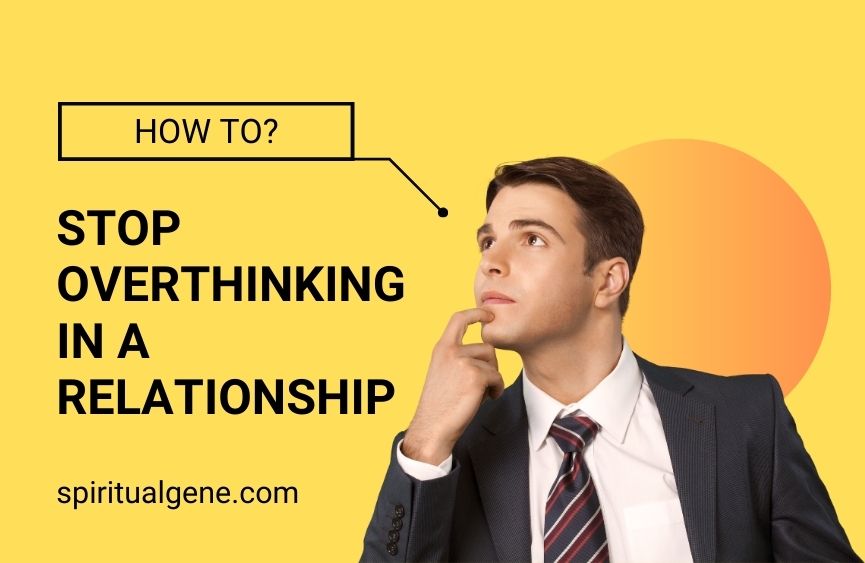




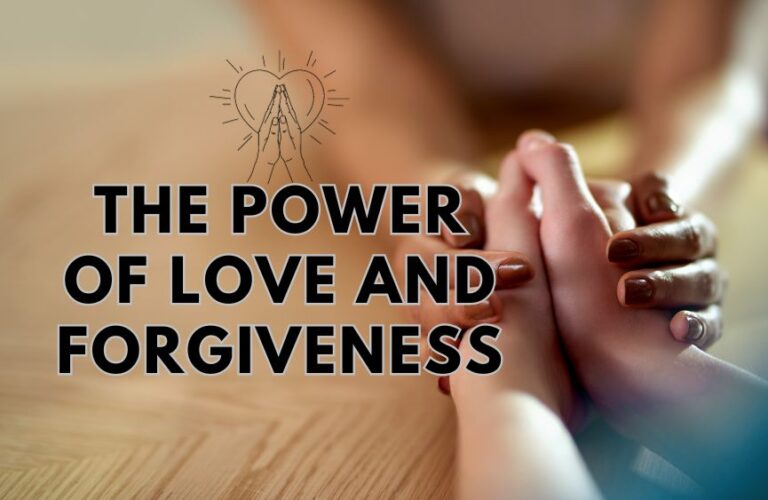

6 Comments